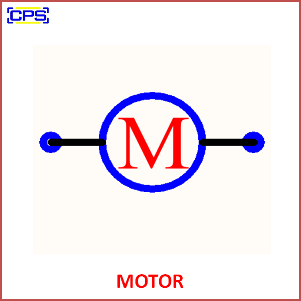A motor is an electromechanical device that converts electrical energy into mechanical energy, typically in the form of rotational motion. Motors are widely used in various applications, from powering industrial machinery to household appliances and vehicles.

Key Features of a Motor:
- Energy Conversion:
- Motors convert electrical energy into mechanical energy using electromagnetic principles.
- Types of Motors:
- Motors are classified based on their power source (AC or DC) and operating principles.
- Rotational Output:
- Most motors produce rotational motion, which can be used to drive various mechanical systems.
Types of Motors:
- DC Motors:
- Operate using direct current (DC). Common types include:
- Brushed DC Motors: Use brushes and a commutator for operation.
- Brushless DC Motors (BLDC): Use electronic commutation, offering higher efficiency and reliability.
- Operate using direct current (DC). Common types include:
- AC Motors:
- Operate using alternating current (AC). Common types include:
- Synchronous Motors: Operate at a constant speed determined by the power supply frequency.
- Induction Motors: Use electromagnetic induction to create rotational motion.
- Operate using alternating current (AC). Common types include:
- Stepper Motors:
- Rotate in discrete steps, commonly used in precision applications like 3D printers and CNC machines.
- Servo Motors:
- Provide precise control of angular position, speed, and acceleration, often used in robotics and automation.
Applications:
- Industrial Machines: Power conveyor belts, pumps, compressors, and manufacturing equipment.
- Household Appliances: Used in fans, washing machines, refrigerators, and vacuum cleaners.
- Transportation: Power electric vehicles, trains, and elevators.
- Robotics and Automation: Enable precise movements in robotic arms and automated systems.
- Power Tools: Used in drills, saws, and other hand tools.
Advantages:
- Wide range of sizes and types for various applications.
- High efficiency in converting electrical energy to mechanical energy.
- Reliable and robust operation over long periods.
Disadvantages:
- Require maintenance, especially for mechanical components (e.g., brushes in brushed motors).
- Efficiency can be affected by load variations.
In summary, a motor is a fundamental device in modern technology, essential for converting electrical energy into mechanical motion for countless industrial, commercial, and domestic applications.
